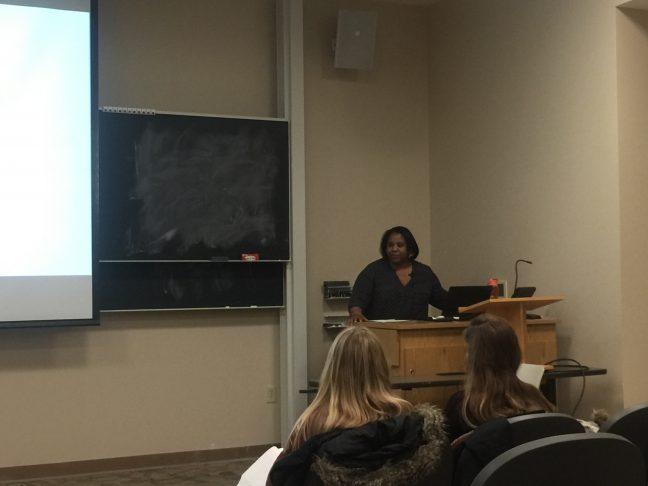In a lecture Thursday, University of Wisconsin associate professor of history Christy Clark-Pujara said the activism of UW’s students of color was largely responsible for the creation of the university’s diversity-based educational programs.
Pi Lambda Phi hosted Clark-Pujara for a talk focused on the importance of race in the United States and at UW.
“Our country looks the way it dose for a particular reason, it was not a natural occurrence and it wasn’t just how it happened,” Clark-Pujara said.
Clark-Pujara said history matters in every context — especially when it comes to race. She said history matters if humans are to be anything more than just a cluster of cells.
The reason why we talk about race as black and white, Clark-Pujara said, is because of the history of slavery. Clark-Pujara said discussions about race are meaningful right now because society uses the law to make it meaningful.
“Race has always been a part of how white politicians function in government,” Clark-Pujara said.
In Wisconsin, and specifically at UW, Clark-Pujara said student-led movement created departments like Afro-American studies and Latinx studies.
The community effort put forth by the students shows the creation of these departments was not due to the need for an ethnic studies program, but rather for the need to learn about the whole construct of the U.S. — from slavery, to race-based immigration laws, to voting in today’s climate.
“We need to be making it as easy to vote as possible,” Clark-Pujara said. “When you look at who votes the most, class matters a lot.”
If students of color and white students hadn’t banded together to demand these programs in an effort to understand the history of marginalized people, Clark-Pujara said the university would not have the diversity-based programs it has today.
As for the future, Clark-Pujara said race will never go away — and it doesn’t need to.
“It’s all about building and investing in groups that have been discriminated against,” Clark-Pujara said.


